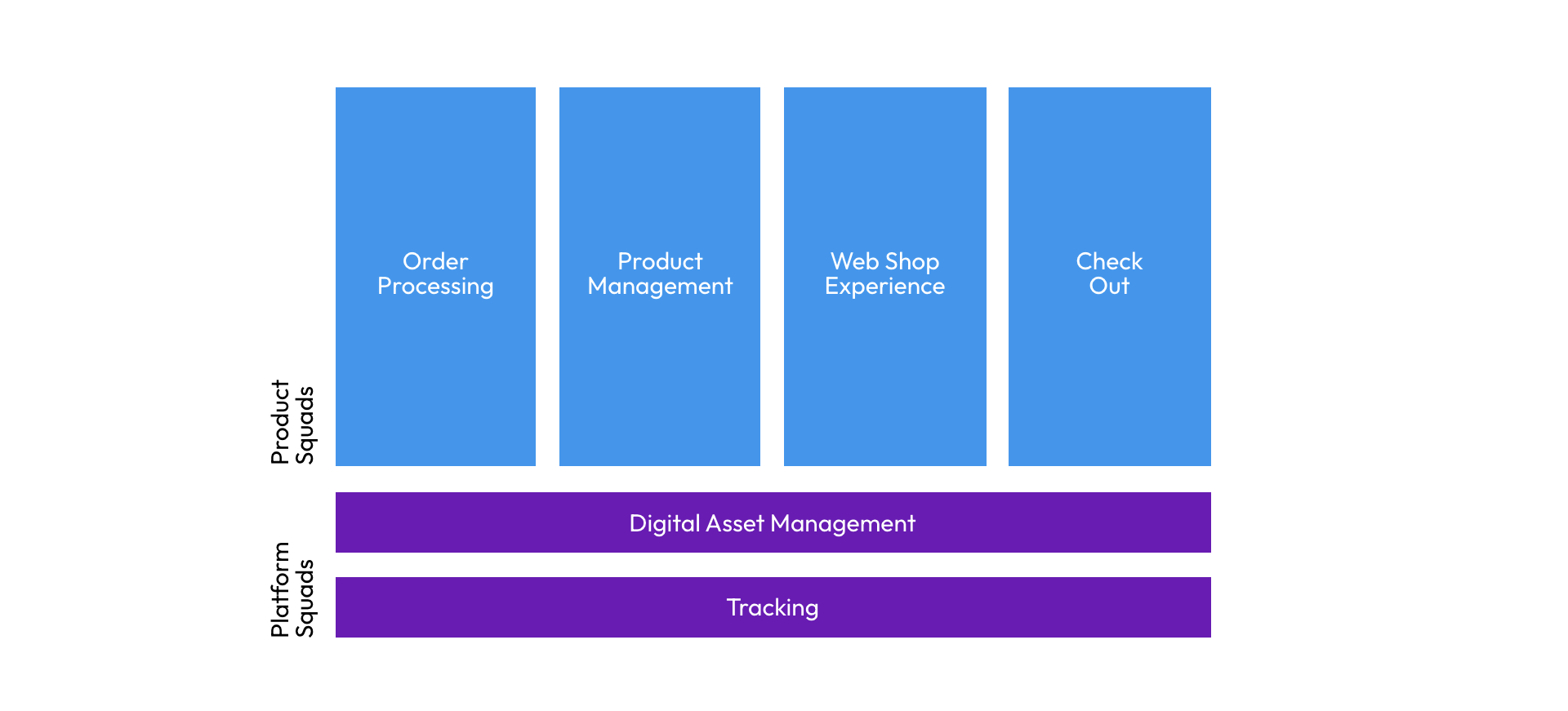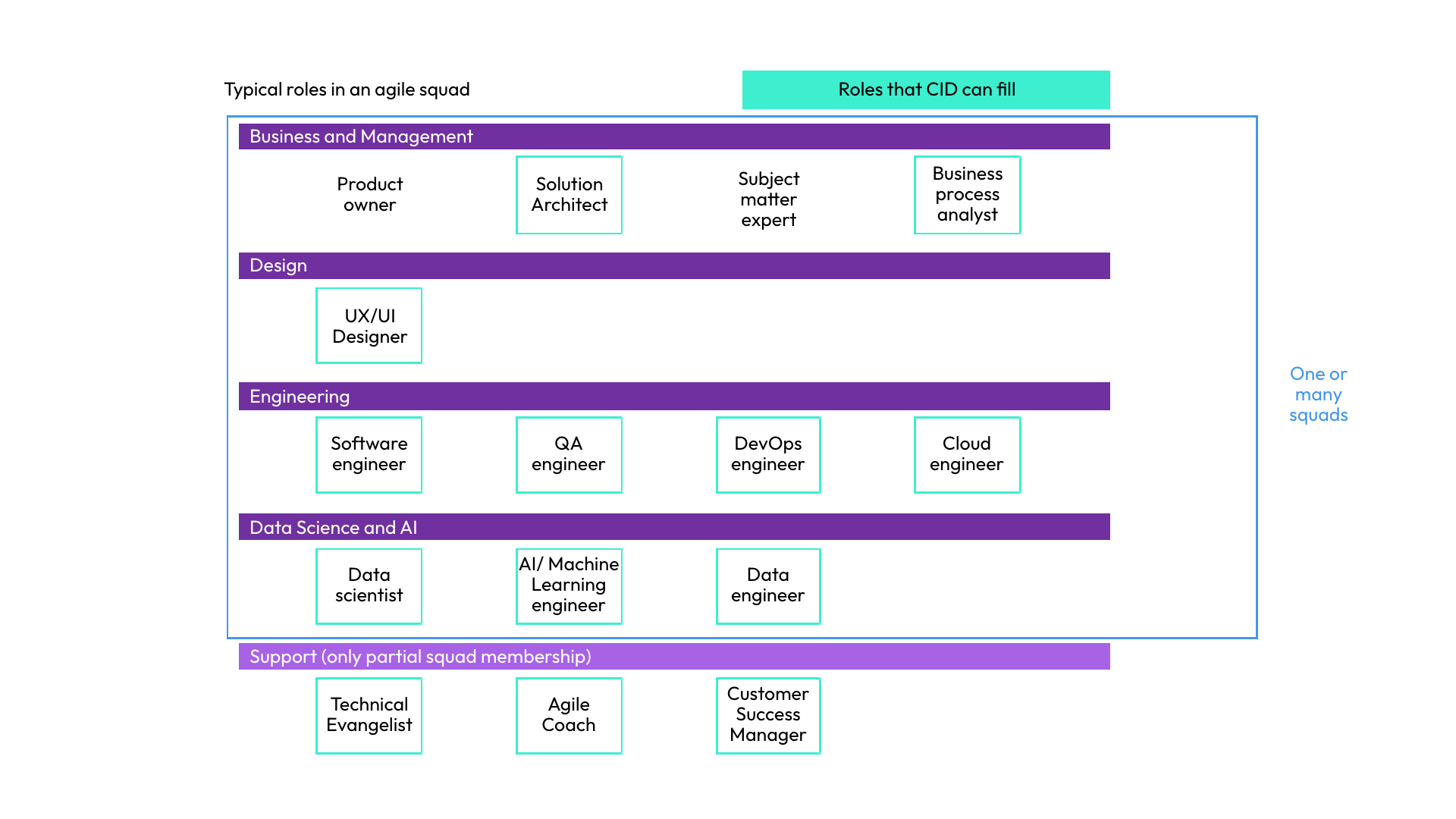The Role of Agile in Digital Transformation
Digital transformation within organizations often involves establishing specialized software or digital teams. Tasked with driving the digitization of processes alongside IT operations, these teams frequently embraced Agile methodologies. However, they remained isolated, functioning in a client-vendor-like relationship with business departments, often called a digital factory approach. This approach introduced significant risks of misalignment and unintended developments, necessitating a shift towards a more integrated model.
The Imperative for Agile Collaboration
Agile is crucial for keeping software product development on track. This approach is particularly effective when business and digital teams collaborate closely, constantly refining and realigning engineering activities with their objectives. Adopting an Agile Product and Platform approach fosters this level of collaboration, where business and tech stakeholders come together in “product squads.”
Implementation at a European Retailer
The Product and Platform Agile Operating Model
At a European retailer, implementing a decoupled, lean software architecture was complemented by establishing a product and platform Agile operating model. The involvement of business stakeholders in digital product squads enhanced alignment and facilitated the dynamic delivery of capabilities that met business needs continuously.
Leveraging Hybrid, Cross-Organizational Squads
Product squads, organized around business domains such as logistics and e-commerce, focused on addressing domain-specific challenges and objectives. Sometimes, multiple squads operate within similar contexts—ranging from product management to web shop presentation and checkout to order processing—depending on the specific needs of each domain.

Examples of product and platform squads
Hybrid, cross-organizational squads comprising the retailer’s personnel and CID team members leveraged unmatched business, technology, and software engineering expertise within a unified organizational structure.

Examples of squad roles, staffed with personnel of the retailer and CID.
Transition Process and Outcomes
Smooth Transition through Iterative Transformation
From 2017 to 2020, the transition from the digital factory model to a product and platform approach underwent iterative transformations and reorganizations. This process was carefully aligned with roadmaps and delivery objectives, ensuring a smooth and frictionless changeover.
Enhanced Output and Reduced Redundancies
Following the transition, the effectiveness of the product and platform squads significantly improved. This was evidenced by an increased output of business-aligned software capabilities and a reduction in redundant engineering efforts due to previous miscommunications or misinterpretations.
The Role of Agile in Digital-First Organizations
The retailer’s evolution into a digital-first entity, with software as a core aspect of its DNA, underscores the critical role of Agile operating models in successful digital transformations. The alignment between strategy, business, and IT is paramount in the modern digital landscape, where enterprise software is foundational to all business operations.
Conclusion: The Necessity of Agile for Continuous Improvement
This case study highlights the necessity of modern Agile operating models in achieving effective digital transformations. Organizations can ensure that their digital strategies and capabilities consistently align with business objectives by fostering a collaborative environment where business and digital teams work in harmony. This approach drives sustained growth and competitiveness in the digital age, showcasing the value of Agile in facilitating continuous improvement and alignment.





